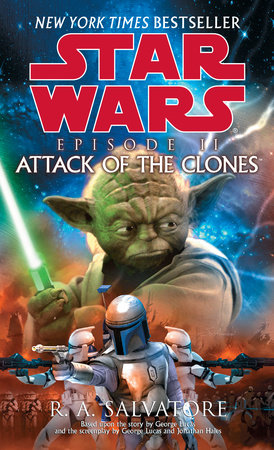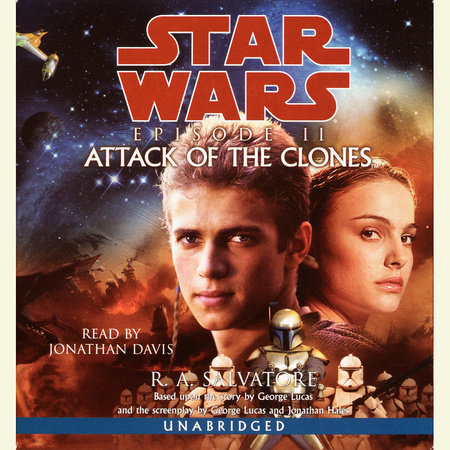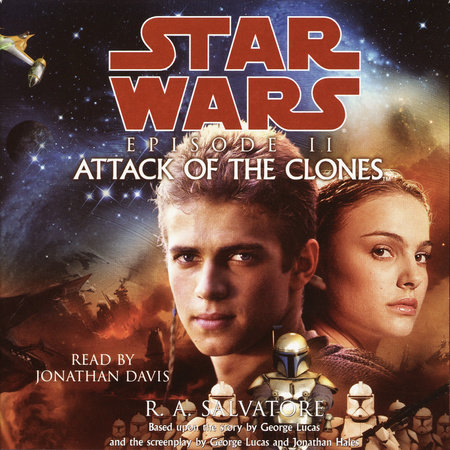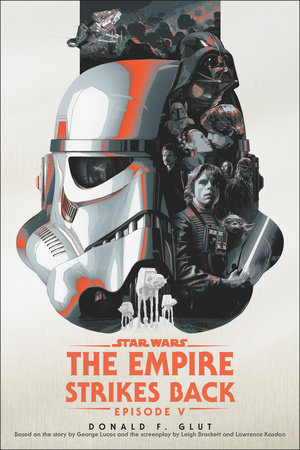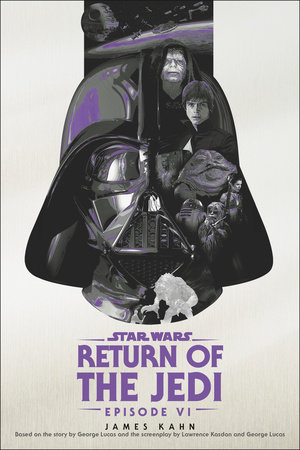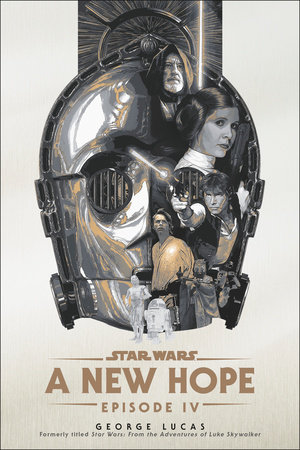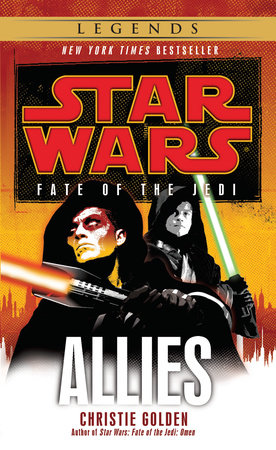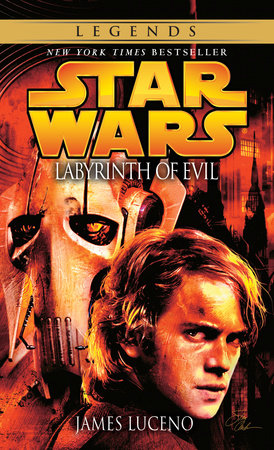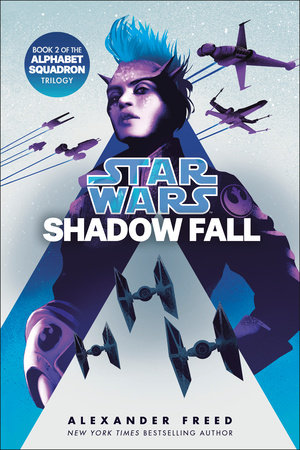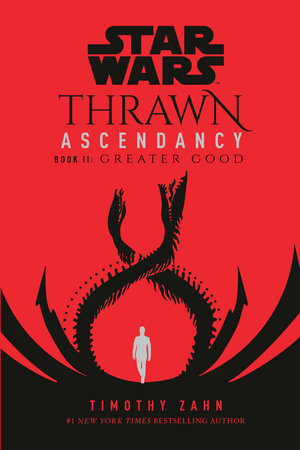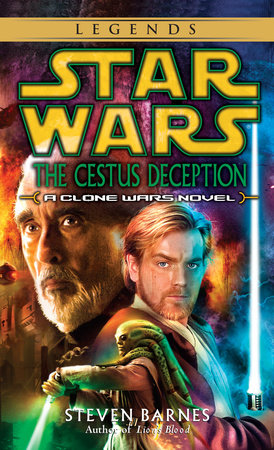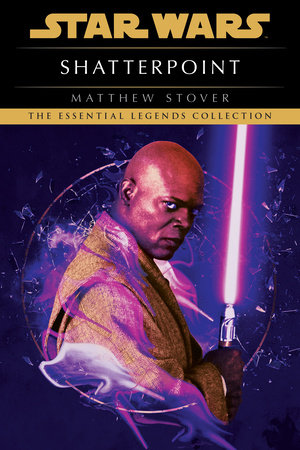A Conversation with R.A. Salvatore
DR:Your last foray into the STAR WARS universe, VECTOR PRIME, featured the death of Han Solo’s partner, Chewbacca. I think it’s safe to say that for a while there you weren’t in danger of winning any popularity contests among Star Wars fans! That might have soured some writers on the idea of doing another book in the series. A novelization is obviously different from an original novel, but even so, I can’t help wondering if you felt any hesitation about doing ATTACK OF THE CLONES.
RAS: Of course. The Chewie incident came at a very bad time in my life. I’d lost my brother, my best friend. I don’t think the world will ever look quite the same to me. At that time, honestly, it was tough for me to generate empathy for people who wrote to me all upset about the loss of a fictional character. Now, in retrospect, I think I can appreciate the deep love that many people have for George Lucas’s GFFA. These are more than fictional characters to many folks. What a tribute to George Lucas that is! And even though it’s a novelization and I’m playing off someone else, I got to sit down with George Lucas and listen to the guy who created all this. That’s a life experience. You don’t turn down things like that.
DR:Um, “GFFA”?
RAS: Galaxy Far Far Away.
DR:I said earlier that a novelization is obviously different from an original novel, but it occurs to me now that perhaps it’s not so obvious after all. How does the writing process differ? Had you done novelizations before? Did this one present any special challenges?
RAS:Well, of course the basis of the story is already done in a novelization. I get a script to write off of. The script had a lot of meat. A lot of it’s psychological. You’ve got this really torn teenager. You start seeing the indications that something’s not right in Anakin’s world. Here’s a guy we know is heading for darkness. I was afraid that the turnover for Anakin was gonna be just a simple thing. People don’t snap like that and go over to the dark side. Maybe they have temporary rage, but they don’t become Darth Vader because of that. But with Anakin, there’s a lot more to it. That’s the real beauty of it. I think that was a nice touch with the script.
What I’m trying to do in the novelization is find those fingers, those side-stories, that will help flesh out the main story. And of course, it’s always easier when I don’t have to come up with too many names! After so many novels, I’m about out of names.
DR:Can you give us an example of the kind of side-stories you’re talking about?
RAS:Not without having my head explode from the famous Lucasfilm implant.
DR:How do you flesh out a story that isn’t really yours to begin with? Did George Lucas work with you on this?
RAS:I had a great meeting up at the Skywalker Ranch with George Lucas, and really got some insights into what he’s trying to accomplish beyond the film. One of his requests was that I try to concentrate on Padmé’s side of the story. George actually took me down the screening room and showed me all the scenes they shot with Natalie Portman and Hayden Christensen. They were beautifully shot.
DR:Has doing the novelization ruined the movie for you?
RAS:Absolutely. I don’t even like trailers! Well, on the other hand, it will be interesting to see the finished product after watching the process for so long.
DR:I know you haven’t seen the movie yet, but based on the script, what do you think fans are going to enjoy most about ATTACK OF THE CLONES?
RAS:I can only speak for myself here. What I enjoyed most is the pacing. We know where we’ve been with Anakin in Episode I, and know where we have to be at the end of Episode III. Watching George Lucas take us there is what has most captured my attention. Of course, there are always those incredible special effects!
DR:Lets’s talk about your own writing for a little bit. What’s next for R.A. Salvatore?
RAS: Immortalis, the finale of the DemonWars series (though I hope to go back and do more books in that world, in different times and/or different places). I just started it the other day, after finishing up the Drizzt book that’s coming out this fall, The Thousand Orcs. My next release is TRANSCENDENCE, which is out at the same time as Episode II.
DR:Is TRANSCENDENCE a continuation of a series, or something brand new?
RAS:DemonWars was originally supposed to be six books, split into two trilogies. The first — The Demon Awakens, The Demon Spirit, and The Demon Apostle — tells the story of Elbryan and the coming of the demon. After I finished that series, I started on the second trilogy, only to realize that I needed a seventh book, a bridge book, to tell of the transition in Pony’s life. Mortalis was born, and to this day, I think it’s not only the best thing I’ve ever written, but the best thing I’ll ever write. Then came the second DemonWars trilogy: Ascendance, TRANSCENDENCE, and the book I just started, Immortalis. I am so very satisfied with this series; it did exactly what I wanted it to do, personally and professionally.
Del Rey:You’ve mentioned in public several times that Tolkien’s work greatly influenced your writing. Which other writers have influenced you, both within the genre and without?
R. A. Salvatore: I think Terry Brooks has been both a friend and an inspiration, and I’d be remiss if I didn’t mention Fritz Lieber as a huge source for me. His Grey Mouser has been quite an inspirational archtype! Also, many of the modern day writers, like Grisham and Crichton, help me along, because they have an understanding of the readership of today. It’s a very different world out there. Readers weaned on MTV and television in general digest information differently than readers of 50 years ago.
DR: Obviously reading is important to you, as is fostering a love of reading in your own kids. Are you involved with any literacy projects in your hometown?
RAS: I sponsor a writing scholarship with my local high school and I visit schools, happily, when asked. I’ve just been so flat-out busy lately, with DemonWars, Dark Elf, and Star Wars® that many things have sort of disappeared from my life. As things settle down, I’ll be able to get back out there more often.
DR:Let’s talk about the act of writing. You are extremely prolific. Is there a routine you follow? Are you a disciplined writer?
RAS: If you’re not a disciplined writer, you’re not a professional writer. It’s that simple. Time management is everything. I write at all hours of the day, whenever the mood strikes and real life allows. And of course, as deadlines approach, I make the mood strike more often. Typically, I try to get about a thousand words done in the morning, right after the kids get off to school. Then I’ll go back to work in the afternoon for an hour or so, and try to get a bit more done at night. Fifteen hundred words a day is a good average right now — hopefully, after I catch up, I’ll get back to between 500 – 1,000 a day.
DR: Then do you have any sage advice for new writers?
RAS: I tell everyone who professes an interest in the business the same thing: if you can quit, then quit. If you can’t quit, then you’re a writer. I really believe it’s that simple. Writers have to write to be happy, though they’re often miserable while they’re doing it (ask my wife). Writing isn’t a choice for me, nor is it one for any professional writers that I know. Does this mean that if you feel that writing is your calling, you’ll sell books and make a living at it? Absolutely not, because the business of being a writer is a different thing than the calling to be a writer. The way I look at it is, simply, write your stories in the manner in which you feel the most comfortable, then hope that enough readers enjoy your style for you to make a living out of it.










